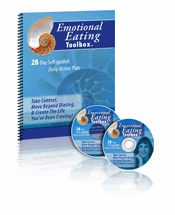 Here’s more evidence that it pays to be mindful of your mood—or more accurately—that it might literally cost you if you aren’t. A recent study by researchers at Harvard, Carnegie Mellon, Stanford and the University of Pittsburgh found that study participants who watched a sad movie clip were later willing to spend four times more money on a fancy water bottle than those who watched a movie clip that was emotionally neutral.
Here’s more evidence that it pays to be mindful of your mood—or more accurately—that it might literally cost you if you aren’t. A recent study by researchers at Harvard, Carnegie Mellon, Stanford and the University of Pittsburgh found that study participants who watched a sad movie clip were later willing to spend four times more money on a fancy water bottle than those who watched a movie clip that was emotionally neutral.
The researchers hypothesize that feeling sad may cause us to become more self-absorbed and devalue our possessions, then try to increase our sense of self worth by purchasing something.
Whether that’s the reason, or whether participants wanted to distract themselves or boost their mood by buying something new, the results of the study remind me a lot of the process of emotional eating.
Like emotional eaters, it’s quite possible that the emotional shoppers are more vulnerable to trying to find “a quick fix” for or a distraction from the negative emotional state they are experiencing. Learning the tools that allow you to slow down, identify your emotions and strategize about how to respond to them is incredibly powerful. Clients who use the Emotional Eating Toolbox™ program often tell me that they quickly find the tools they learn help them in many aspects of their life—not only with overeating and weight loss.
When we can learn to be present in the moment and aware of how we are feeling and what we are needing, we tend to be much better equipped to make choices that are in our best interest.
What do you think?
Melissa
Monday, June 30, 2008
Emotional Spending?
Posted by
Melissa McCreery, PhD
at
10:02 AM
0
comments
![]()
![]()
Labels: emotional eating, Emotional Eating Toolbox, mindful eating
Friday, June 20, 2008
Emotional Eating: Creating Enduring Change
 I’ve spent a lot of time in airports lately. That means that I’ve spent a lot of time at the news stand, scanning the covers of magazines, looking for some nice relaxing reading material. In my browsing, I’ve been struck by how magazine articles emphasize making changes or starting something new.
I’ve spent a lot of time in airports lately. That means that I’ve spent a lot of time at the news stand, scanning the covers of magazines, looking for some nice relaxing reading material. In my browsing, I’ve been struck by how magazine articles emphasize making changes or starting something new.
“Get in bikini shape,” "The diet that works," “Exercise programs for 6-pack abs.” You know what I’m talking about--headlines with big sparkly promises that aim to excite us about undertaking a new project.
Given the appropriate level of enthusiasm, most of us are able to get motivated to start something new. It’s fresh territory, a clean slate, a new approach.
Here’s what the magazines don’t talk about: successful change doesn’t happen with just a bright shiny new program. The right program is only one tool. Enduring change requires stamina. Changes that last require us to pace ourselves. It’s not just STARTING the exciting new project; it’s continuing to slog ahead when the going gets tough and when the excitement wanes.
With emotional eating, stamina means having the courage to stop and ask ourselves why we are reaching for the Doritos, even on the days when we’re not sure we really want to know the answer. Enduring change requires starting the project or the program, riding the wave of any honeymoon phase we are lucky enough to experience, and then recognizing that the biggest payoff comes when the easy part stops and we start feeling stuck.
It’s really true. When you hit that spot where you feel like “here we go again, this is where it all falls apart,” and you stick with it, you keep slogging ahead, you put your head down and you keep taking small steps forward--THAT’S where the big payoff happens.
It's hard. Many people can’t do this alone. We have too many inner critics--powerful inner perfectionists, who talk us into sabotage and failure. This is the place where you can pay off big if you call a friend or a role model. This is one of the biggest benefits of hiring a coach. It can take courage to state that the change you are trying to make is important enough to reach out for help, but investing in yourself and investing in moving forward is a powerful step. The experience of learning how to bypass those internal critics and those old stumbling blocks is priceless.
As enticing as the magazine headlines are, many times we don’t need to start over. What we need is the encouragement and the accountability and the support and the reminders to KEEP GOING. We need that voice in our ear reminding ourselves that we really truly are getting somewhere. Small steps, moving forward--that's what pays off.
Take good care,
Melissa
Posted by
Melissa McCreery, PhD
at
1:55 PM
0
comments
![]()
![]()
Labels: change, Coaching, emotional eating, small steps
How to Identify Emotional Eating: Ten Signs
 I'm often asked about how to identify whether or not emotional eating may be an issue. Emotional eating is not always easily identified. Here are some patterns that are likely to indicate that some kind of emotional eating is going on:
I'm often asked about how to identify whether or not emotional eating may be an issue. Emotional eating is not always easily identified. Here are some patterns that are likely to indicate that some kind of emotional eating is going on:
1. The hunger comes on suddenly and the need to eat feels urgent--physiological hunger comes on slowly and it's okay to delay eating.
2. You keep eating even if you aren't hungry anymore or the hunger doesn't go away even though you are full.
3. You eat to the point of physical discomfort.
4. You don't know whether you were hungry or not when you ate.
5. After you eat you realize you aren't really aware of how much you ate or how it tasted.
6. You have feelings of shame, guilt or embarrassment after eating.
7. You eat because you are bored, tired, lonely, excited.
8. Hunger accompanies an unpleasant emotion--anger, hurt, fear, anxiety. Emotional eating begins in your mind--thinking about food--not in your stomach.
9. You crave a specific food and won't feel content until you have that. If you are eating for physical hunger, any food will fill you up.
10. You keep eating (or grazing, or nibbling) because you just can't figure out what you are hungry for. Nothing seems to hit the spot (physical hunger goes away no matter what food you choose to fill up on).
Posted by
Melissa McCreery, PhD
at
1:55 PM
0
comments
![]()
![]()
Labels: emotional eating, nervous eating, overeating, stress eating
Monday, June 9, 2008
“Melissa, Why do you work with bariatric surgery patients?”
I’m often asked this. Clients and readers are often curious because I’m not a weight loss surgery patient myself and because I don’t have a “weight loss story.” Except that I do. My story has emerged from the stories of others.
The truth is, I founded Enduring Change Coaching after years of practicing as a Clinical Psychologist. As a Clinical Psychologist, one area of expertise has been helping people with food and weight issues. Since 1995, I have worked with just about every kind of eating disorder, weight issue, and food issue an adult can have. I’ve witnessed peoples’ pain, struggles and desperation, and I’ve had the honor of sharing in their experiences of transformation (and I’m not just talking about weight)—as they found their own paths to making peace with food, resolving weight issues, putting eating and food in a much smaller place in their lives, and moving on to focusing on more enjoyable and empowering things.
I developed the Emotional Eating Toolbox™ and run the bariatric surgery coaching programs at Enduring Change because I saw people struggling with their weight and feeling hopeless and I knew the tools and strategies that I have developed with my clients can make a profound difference. I’ve met too many people who believe that taking control of their weight and their relationship with food isn’t possible and who believe that they must resign themselves to fighting—and losing—battles with weight forever.
I’ve known and worked with too many bariatric surgery patients who are stuck in a mode of self-blame. They believe they should be able to succeed with weight loss and with weight loss surgery without help or support and they blame themselves when they struggle.
I’ve known other weight loss surgery patients who were never told that there are other essential tools they need to acquire and use with weight loss surgery. (Thankfully, I’m seeing less of this.) They too feel like failures when they find themselves struggling with emotional eating, overeating and weight gain after surgery.
And I’ve worked with plenty of people who have had weight loss surgery, who know darned well that the procedure they had is only one tool. They know that they have other challenging work ahead of them, and other tools they will need to acquire to get where they want to go. The problem is, they aren’t sure where to get those tools. There are (in many areas) too few support groups (especially for individuals who are 12 months or more post-surgery) and not enough information about good resources. There is not enough information about overeating and emotional eating. People are quick to tell you not to overeat, not to use food to fill an “emotional hole,” and not to eat to cope with stress or boredom or loneliness. But there is not enough quality information and help out there about what to do instead.
That’s been my experience. And that’s why I coach individuals and hold special coaching programs and conferences for people who have had bariatric surgery—by telephone—so anyone can attend. It’s why I periodically offer free teleclasses. Most importantly, it was one of my motivations for creating the Emotional Eating Toolbox™ Self-guided Program. Because there is too much shame and self-blame out there. And because we all are a lot more likely to succeed when we have the right tools.
Take good care,
Melissa
Posted by
Melissa McCreery, PhD
at
12:07 PM
0
comments
![]()
![]()
Labels: bariatric surgery, change, Coaching, emotional eating, Emotional Eating Toolbox, free teleseminar, gastric bypass, lap band, overeating, weight loss surgery
Monday, June 2, 2008
Stressed Monkeys Overeat
So what's the significance of this story? Well, I hope it helps some who tend to get so angry with themselves when they succumb to eating under stress. No, I don't believe this study means that we can't take charge of overeating, but I think it does show that emotional eating is complex and that our appetites are driven by a number of different issues and realities. The desire to eat to cope with emotions and stress is something that should be approached with respect. Ignoring the cravings or the urges doesn't necessarily get us where we want to go.
I think the story supports the importance of having tools to cope with stress, to bolster our self-care and to help us feel empowered--tools that we can strive to use instead of overeating or stress eating. What do you think?
Take good care,
Melissa
Posted by
Melissa McCreery, PhD
at
10:16 AM
2
comments
![]()
![]()
Labels: emotional eating, nervous eating, overeating, stress eating, stress management







